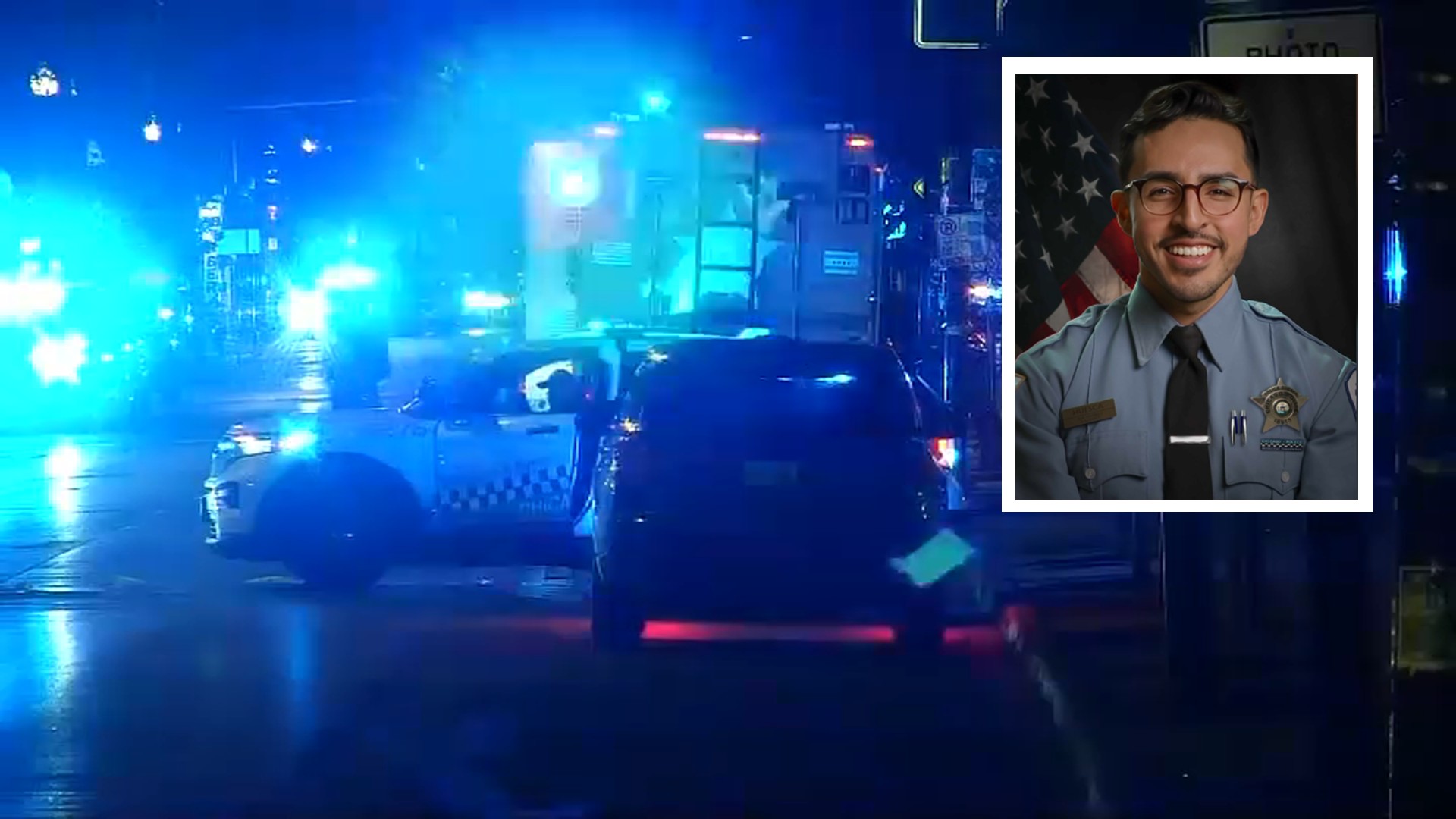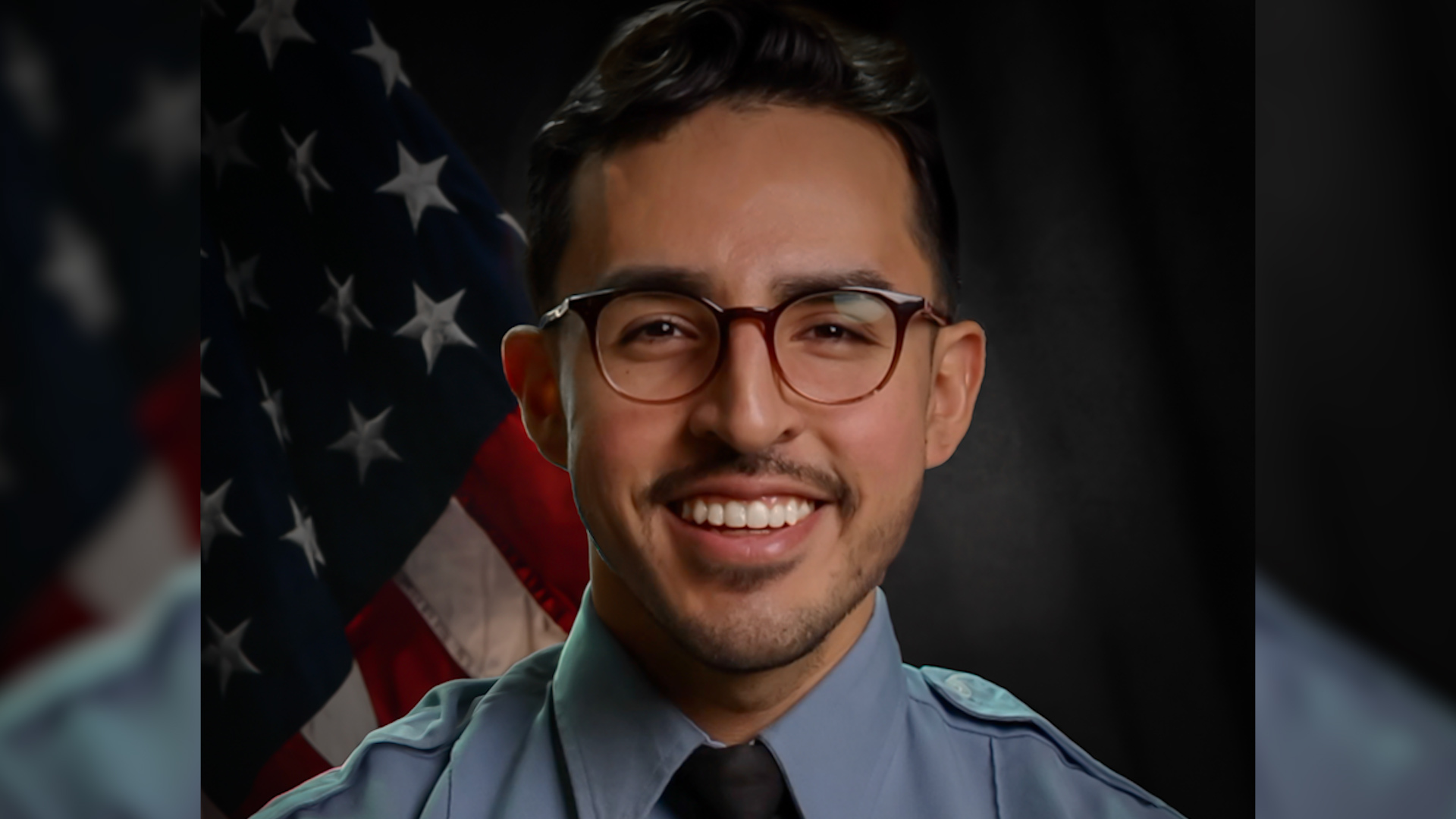A jury on Thursday found Marcus Floyd, convicted in the 2010 killing of Chicago Police Officer Thomas Wortham, fit to stand trial in a new retrospective fitness hearing he was granted in an appeal based on his own amnesia stemming from the crime itself.
Wortham's family and several law enforcement officers lined the pews of the courtroom for the fourth and final day of the trial, visibly emotional and some even breaking into applause following the resolution of the proceedings.
"We are so grateful for the jurors' verdict," the fallen officer's sister Sandra Wortham said after the verdict was read. "We are so grateful that they came back with a verdict supported by the law and the facts in this case and we are so grateful now that the case can progress but that citizens of this county have once again affirmed that Marcus Floyd was fit to stand trial in 2015 and hopefully he will continue to serve his sentence for the murder he committed and we can continue to make the best of life without Tommy."
Floyd was convicted of Thomas Wortham IV’s murder in 2015. The officer's father, himself a retired police officer, fired back at his son's assailants, critically wounding Floyd and killing his cousin. Floyd said the wounds sustained that night left him with amnesia of the event.
Feeling out of the loop? We'll catch you up on the Chicago news you need to know. Sign up for the weekly Chicago Catch-Up newsletter here.
The Illinois Appellate Court later ruled that because mistakes were made in his original fitness hearing, Floyd had to be given a new one to determine if he was fit to stand trial back in August of 2015.
"I don't think any family should have to relive what we just relived this week 12 years after our son, our brother was killed," Thomas Wortham III said after the verdict, standing with his wife and daughter.
Investigations
For their part, Floyd's family said their fight was not over.
"Marcus Floyd is not a murderer. He's not a monster. He is not what the prosecution is making him out to be," Floyd's sister Dawanna Floyd.
Thursday's proceedings began with the defense's third and final witness, University of Chicago law professor Herschella Conyears, who testified on the need of a defendant to participate in his own case.
Based on her review of records in the case, Conyears said she believed "you have to expand your investigation of this and it starts definitely with being able to get from your client what he or she knew."
"Would he be able to assist you or an attorney in preparing a defense in this case?" defense attorney Brendan Max asked Conyears.
"The short answer," she replied, "is no."
On cross-examination, Conyears did admit there are occasions where defendants can't help - maybe they were intoxicated when the crime was committed and don't remember it, or they choose not to cooperate with their own lawyers.
But she refused to concede that others present at the crime scene in this case could have filled in the gaps in Floyd's memory.
Following Conyears' testimony, attorneys made their closing arguments. The defense suggested Floyd's very civil rights were at stake, cautioning the jury, "We can't tell Marcus that it’s a fair fight for him to go in and face these charges."
The law states amnesia alone does not render a person unfit to stand trial. And prosecutor Mary Jo Murtaugh declared that Floyd's memory is not the only source his lawyers would have had to defend the crime.
"Who's to say his version of events is the right version?" she asked. "It presumes he has some kind of innocent explanation about it."



